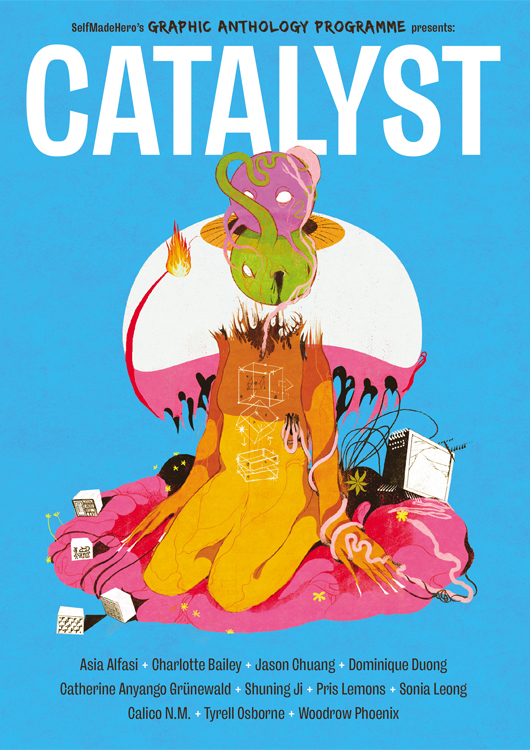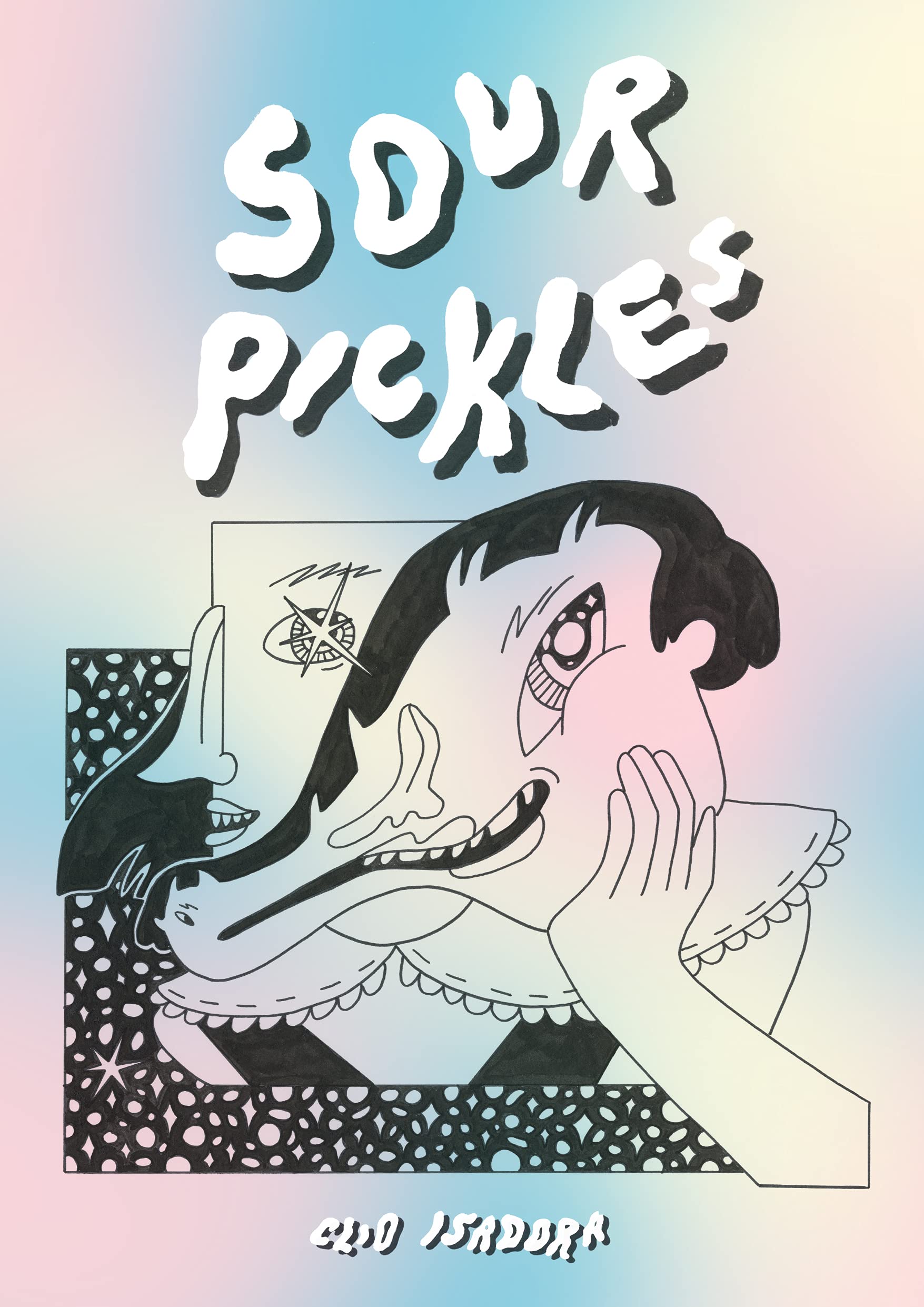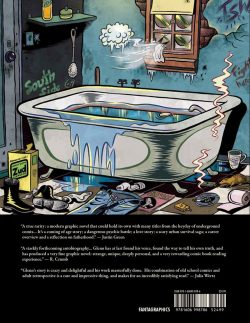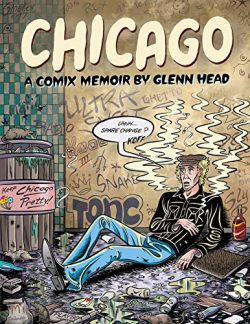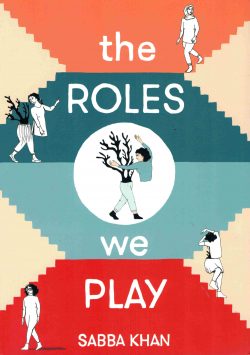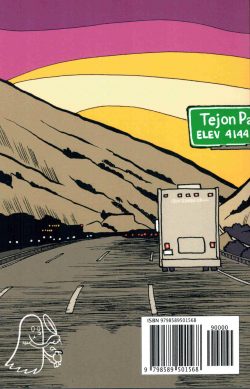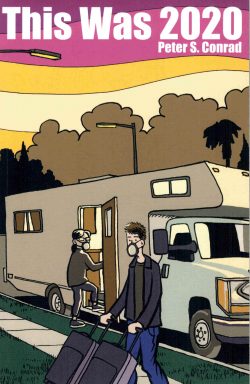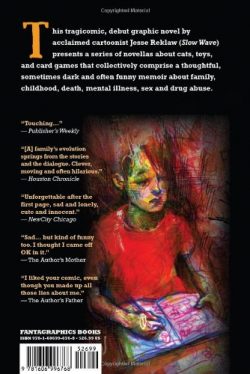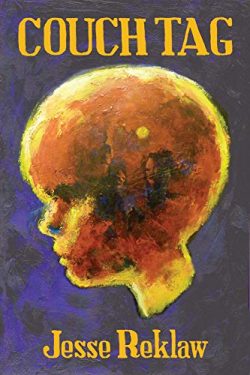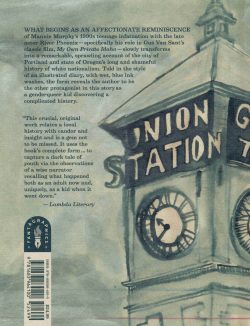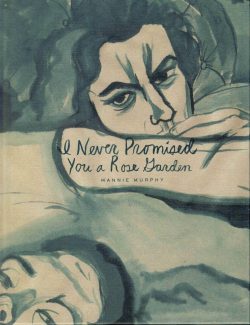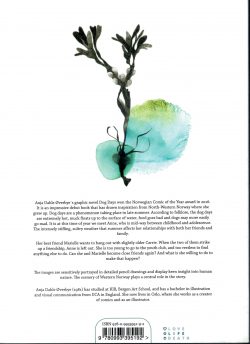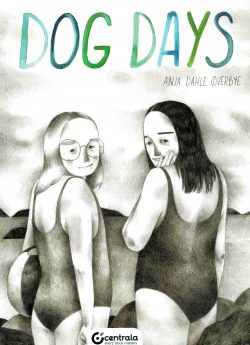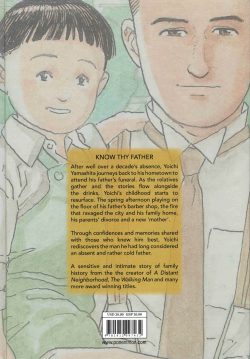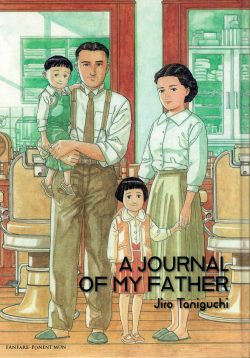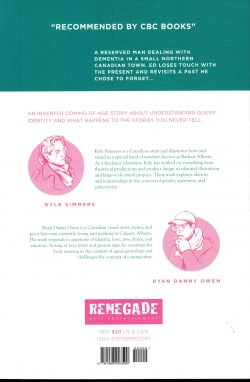
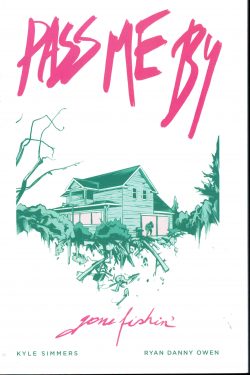
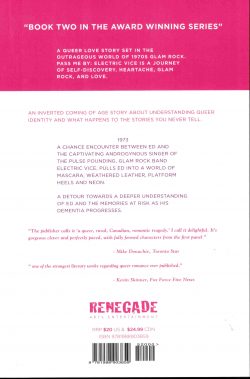
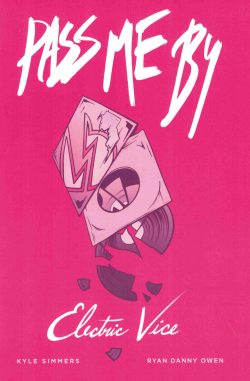
By Kyle Simmers & Ryan Danny Owen, with Derek Simmers (Renegade Arts Entertainment)
ISBN: 978-1-98890-359-0 eISBN 978-1-98890-371-2 (Gone Fishing)
ISBN: 978-1-98890-385-9 eISBN 978-1-98890-385-8 (Electric Vice)
Win’s Christmas Gift Recommendation: Enchanting and Chilling Exploration of Life at the End… 9/10
Once upon a time, comics were all thud & blunder action or spoofing slapstick shenanigans. I will always have a soft spot for those Good Old Days, but the world has moved on and is now a far more complex place with more sophisticated and variegated demands.
Oddly, that’s one of the underlying themes in a gently beguiling, award-winning graphic narrative sequence that began in 2019 with the release of Pass Me By: Gone Fishing – a bittersweet human-scaled reverie constructed by visual artist, author and Queer historian Ryan Danny Owen & artist/illustrator Kyle Simmers.
Both are Canadian and their collaboration is very much in the manner of the perceived national character: the kind of funny, weird, no-holds-barred, heartbreaking yet civil, decent human drama Canadian creators are so adept at pulling off (check out movies and shows like Men With Brooms, Slings and Arrows or Bon Cop, Bad Cop if you need further clarification of the easy je ne se quoi, we’re talking about…).
In a rural Northern Canadian town, old Ed is getting used to some distressing news. After the life he’s led and the things he’s done, it’s hard to adapt to his recent dementia diagnosis. As his innermost history, mental faculties and simple patience daily slip away, the few folk he’s allowed to get close try to watch over him, but that’s never been Ed’s way.
Increasingly, with the demands of his existence pressing in on him, Ed’s mind turns to the past he’s resolutely avoided and tried to forget; the travelling; the men he’s loved and the music he played… but some things can’t be erased by time, distance or desire…
Second volume Pass Me By: Electric Vice picks up the story in 1973 via a deferred coming-of-age/out event as a young, frustrated and confused country musician playing local bars and dives is lured away by an androgenous minor god of the glam rock circuit.
Ed has never met anyone like Lou or the bizarre assemblage of ambivalent personalities comprising Electric Vice. Despite being wracked with doubt, Ed jumps when Lou offers him a spot in the band, and they tour north America, making what then seemed like unforgettable memories…
Now, he can’t tell if it was opportunity or love that made him go and made him stay. Decades later, poor brain-addled old Ed is drowning in memories and still confused when life hits him hard yet again as Lou turns up like a tarnished bad penny…
Compelling, wry and cheerily laconic , this is a slyly seductive paean to being human and the obsession with our “Glory Daysâ€, but conceals an emotional knockout punch ready to slip past your so-sophisticated, drama-hardened heart. Pass Me By allows its characters room to act and lets the pictures tell a simple but captivating story. Kyle Simmers’ illustration is straightforward with a winning charm, always promising more and even better to come.
I just can’t wait…
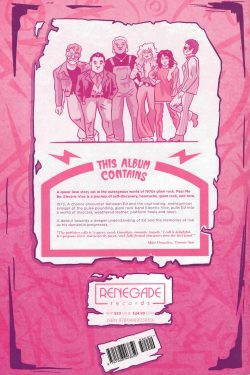
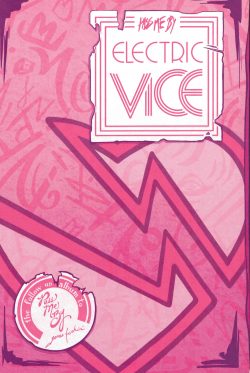
© 2019, 2021 Kyle Simmers and Ryan Danny Owen. All rights reserved.

